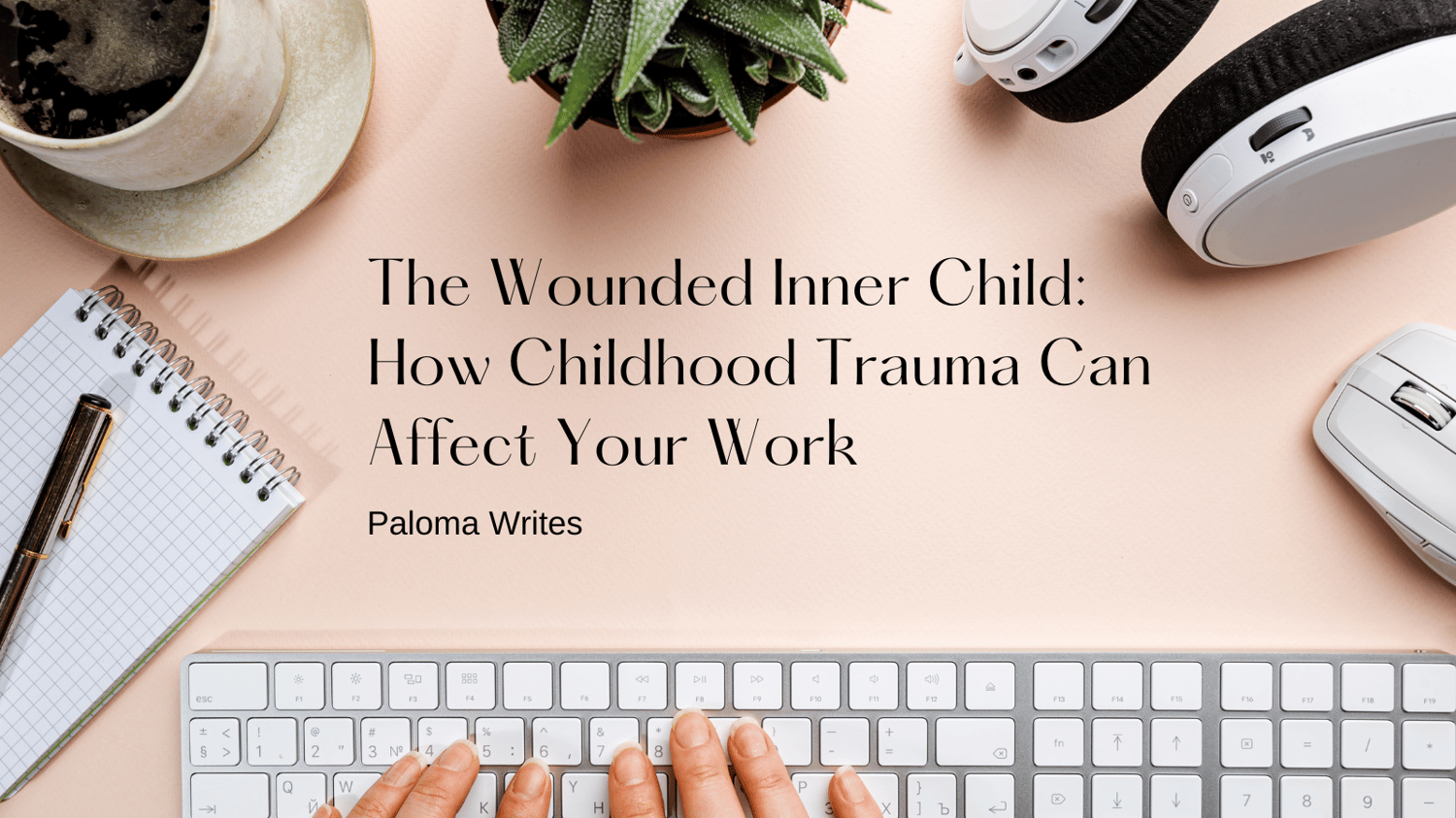Have you ever felt like you're not good enough at work, despite having the necessary skills and qualifications?
Do you struggle with setting boundaries with colleagues or managers, or fear rejection or criticism?
That was me a few years ago. These experiences I mentioned above, may be related to your wounded inner child. I am happy to say I’ve made tremendous progress in this area.
In this article, I will expand on how I overcame so many of my internal blockages related to my wounded inner child.
According to recent studies, childhood trauma can have a lasting impact on our mental health and behavior in adulthood, including at work. The wounded inner child refers to the part of us that carries the emotional pain and unmet needs from our childhood experiences, which can show up in various ways at the workplace.
Here are 10 examples of how the wounded inner child can show up at work, based on recent research:
1.Fear of rejection or criticism from colleagues or managers, leading to an inability to speak up or assert oneself in meetings or discussions.
2. Overreacting to feedback or constructive criticism, taking it personally and feeling hurt or attacked.
3. Difficulty trusting others, leading to a reluctance to delegate tasks or work collaboratively.
4. Low self-esteem or self-worth, leading to a lack of confidence in one's abilities or value to the organization.
5. Difficulty setting boundaries with colleagues or managers, leading to a tendency to overwork or take on too much responsibility.
6. Feeling like an imposter or fraud, despite having the necessary skills and qualifications for the job.
7. Struggling with perfectionism, leading to an excessive focus on details or an inability to complete tasks due to a fear of failure or criticism.
8. Difficulty managing emotions in stressful situations, such as conflict or tight deadlines, leading to outbursts or shutting down emotionally.
9. Fear of abandonment or rejection by colleagues or managers, leading to an excessive need for approval or a reluctance to take risks.
10. Difficulty receiving feedback or recognition for accomplishments, due to a belief that one doesn't deserve it or that it needs to be genuine.
These experiences can negatively affect our performance and well-being at work, as well as our relationships with colleagues. For example, a fear of rejection or criticism may prevent us from sharing our ideas or feedback, leading to missed opportunities for growth and innovation.
An example from my own life was debilitating perfectionism. It led me to burnout and anxiety. It permeated my work life, my art, and even my hobbies that were supposed to be fun.
How did I heal my wounded inner child?
It took a village. After much searching, I found a doctor who took me seriously. I found a therapist who was trauma-informed. I started valuing myself enough to cut off toxic people and make new genuine friends. I found a ThetaHealing practitioner who empowered me. I recognize that having access to this level of care is a privilege. I’ve never taken it for granted.
After much inner work, I no longer need a village. I became a ThetaHealing practitioner myself and continue working on myself continuously. ThetaHealing is a form of energy healing that uses the Theta brainwave state to access and change limiting beliefs and patterns in the subconscious mind. Although I was highly skeptical about it in the beginning, I can now safely say: ThetaHealing has been the single most efficient healing tool for me. It has had a huge and lasting impact on me.
Practicing self-compassion and self-care, and developing skills in communication, assertiveness, and emotional regulation are not things we are taught as children. The good news is that it can be learned. I am living proof. Recognizing and addressing my wounded inner child improved every aspect of my life.
Curious about how ThetaHealing can help you? Feel free to reach out to me. I’m happy to pass on the tools I have learned.
Workplaces can and should create a culture of psychological safety and support, where employees feel comfortable expressing their needs and concerns and have access to mental health and well-being resources. This can include offering employee assistance programs, training in trauma-informed practices, and promoting work-life balance and flexibility.
It all sounds great on paper, but we all know how it goes in reality. We can, however, focus on what we can control. By acknowledging and addressing the wounded inner child, we can create healthier and more fulfilling work environments for ourselves and others. The more I heal myself, the more I see the ripple effect on everyone in my life.
It may sound cliché but it’s absolutely true: healed people, heal people.
Did you recognize yourself in the 10 points listed above? Inbox me to talk about it.



Comments ()